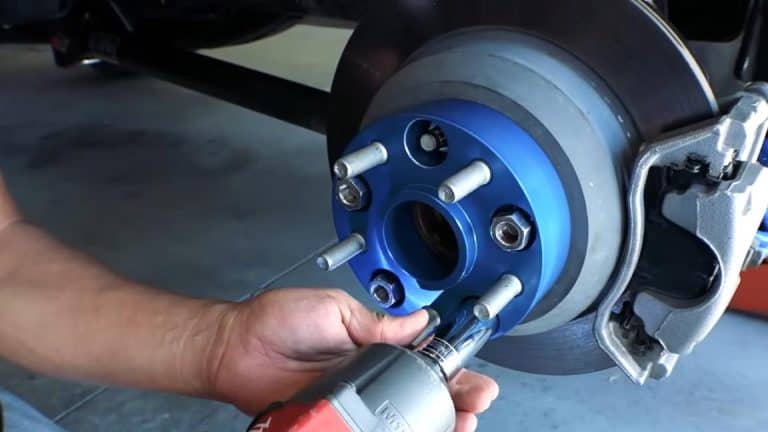Jeep Compass Catalytic Converter Problems
The Jeep Compass is a versatile and reliable SUV that has captured the hearts of many drivers. However, like any vehicle, it is not without its issues. One common problem that Jeep Compass owners face is with their catalytic converter.
The catalytic converter is an essential component of the Jeep Compass’s exhaust system. It helps reduce harmful emissions and pollutants from the vehicle’s exhaust. When it malfunctions, it can cause a range of issues, including reduced engine performance, decreased fuel economy, and even failed emissions tests. In this article, we will explore some of the most common Jeep Compass catalytic converter problems and how to address them.

Jeep Compass Catalytic Converter Problems: Understanding the Causes and Solutions
What is a Catalytic Converter?
The catalytic converter is an important component of your Jeep Compass’s exhaust system. It is responsible for converting harmful pollutants in your vehicle’s emissions into less harmful gases before they are released into the atmosphere. Without a properly functioning catalytic converter, your vehicle’s emissions could have a negative impact on the environment and could even cause your Jeep to fail an emissions test.
Common Catalytic Converter Problems
As with any component of your vehicle, the catalytic converter can experience problems over time. Here are some of the most common catalytic converter problems that Jeep Compass owners may encounter:
1. Clogged Catalytic Converter
Over time, the catalytic converter can become clogged with debris, reducing its efficiency and causing your vehicle to run poorly. Symptoms of a clogged catalytic converter include reduced engine performance, rough idling, and reduced fuel efficiency.
2. Overheating
Excessive heat can also cause problems with your Jeep Compass’s catalytic converter. When the converter overheats, it can become damaged and may need to be replaced. Symptoms of an overheating catalytic converter include a burning smell, reduced engine performance, and a check engine light.
3. Physical Damage
The catalytic converter can also become physically damaged due to a collision or other impact. Signs of physical damage include visible dents or scratches on the converter, as well as reduced engine performance and a check engine light.
Solutions to Catalytic Converter Problems
If you suspect that your Jeep Compass’s catalytic converter is experiencing problems, there are a few solutions that you can try:
1. Replace the Catalytic Converter
If your catalytic converter is severely damaged or clogged, you may need to have it replaced. This can be a costly repair, but it is necessary to ensure that your vehicle is running efficiently and that your emissions are within legal limits.
2. Clean the Catalytic Converter
If your catalytic converter is clogged but not severely damaged, you may be able to clean it to restore its efficiency. This can be done using a specialized cleaning solution and should only be attempted by a trained professional.
3. Check for Other Problems
Sometimes, catalytic converter problems can be caused by other issues with your Jeep Compass’s engine or exhaust system. Before replacing or cleaning the catalytic converter, it is important to have your vehicle inspected by a qualified mechanic to rule out any other potential problems.
The Benefits of a Properly Functioning Catalytic Converter
A properly functioning catalytic converter offers several benefits to Jeep Compass owners, including:
1. Reduced Emissions
By converting harmful pollutants into less harmful gases, a properly functioning catalytic converter reduces your vehicle’s impact on the environment.
2. Increased Fuel Efficiency
A clogged or damaged catalytic converter can reduce your vehicle’s fuel efficiency, leading to higher costs at the gas pump. By ensuring that your catalytic converter is functioning properly, you can improve your Jeep Compass’s fuel efficiency.
3. Improved Engine Performance
A damaged or clogged catalytic converter can also lead to reduced engine performance. By addressing catalytic converter problems promptly, you can ensure that your Jeep Compass is running at its best.
Catalytic Converter vs. Muffler
It is important to note that the catalytic converter and the muffler are two separate components of your Jeep Compass’s exhaust system. While both are important for reducing noise and emissions, the catalytic converter is responsible for converting harmful pollutants into less harmful gases, while the muffler is responsible for reducing the noise produced by your vehicle’s engine.
Conclusion
The catalytic converter is an important component of your Jeep Compass’s exhaust system, and it is essential to ensure that it is functioning properly to reduce your vehicle’s impact on the environment and to improve its performance. By understanding the common problems that can affect your catalytic converter and the solutions available, you can keep your Jeep Compass running smoothly for years to come.
Frequently Asked Questions
Here are some common questions related to Jeep Compass Catalytic Converter Problems:
What are the signs of a bad catalytic converter in a Jeep Compass?
If your Jeep Compass is experiencing catalytic converter problems, you may notice a few signs, such as a decrease in engine performance, increased emissions, and a strong odor. Additionally, you may experience a reduction in fuel efficiency and hear a rattling noise coming from the exhaust system. If you notice any of these signs, it’s important to take your vehicle to a mechanic for further inspection.
What causes catalytic converter problems in a Jeep Compass?
There are several factors that can cause catalytic converter problems in a Jeep Compass. One common cause is a buildup of carbon deposits, which can clog the catalytic converter and restrict exhaust flow. Other causes may include overheating, physical damage, or contamination from oil or coolant. Additionally, some Jeep Compass models may be prone to catalytic converter failure due to a manufacturing defect or design flaw.
How much does it cost to replace a catalytic converter in a Jeep Compass?
The cost to replace a catalytic converter in a Jeep Compass can vary depending on several factors, such as the year and model of your vehicle, the severity of the damage, and the labor costs in your area. On average, you can expect to pay between $1,000 and $2,500 for a new catalytic converter and installation. However, prices may be higher or lower depending on your specific situation.
Can I drive my Jeep Compass with a bad catalytic converter?
While it’s technically possible to drive a Jeep Compass with a bad catalytic converter, it’s not recommended. A malfunctioning catalytic converter can cause further damage to your vehicle’s engine and emissions systems, and may even lead to a breakdown or safety hazard on the road. Additionally, driving with a bad catalytic converter can result in fines or penalties for violating emissions laws in your state or municipality.
How can I prevent catalytic converter problems in my Jeep Compass?
To prevent catalytic converter problems in your Jeep Compass, it’s important to keep up with regular maintenance and inspections. This includes changing your oil and other fluids on schedule, using high-quality fuel and additives, and having your exhaust system inspected by a qualified mechanic. Additionally, you may consider installing an aftermarket catalytic converter or exhaust system to improve performance and durability.
My Fight With A Jeep Compass Catalytic Converter (Part 2)
In conclusion, Jeep Compass catalytic converter problems can be a frustrating issue for owners of this popular SUV. However, knowing the most common symptoms and causes can help you stay ahead of any potential issues and ensure that your vehicle runs smoothly.
If you do experience any issues with your catalytic converter, it’s important to get it checked out by a professional as soon as possible. Ignoring these problems can lead to more serious issues down the line, such as reduced engine performance and increased emissions.
Ultimately, taking good care of your Jeep Compass and staying on top of any potential issues can help you enjoy years of reliable performance on the road. Whether you’re a daily commuter or a weekend adventurer, this versatile SUV is sure to provide you with the reliability and comfort you need to tackle any journey.






